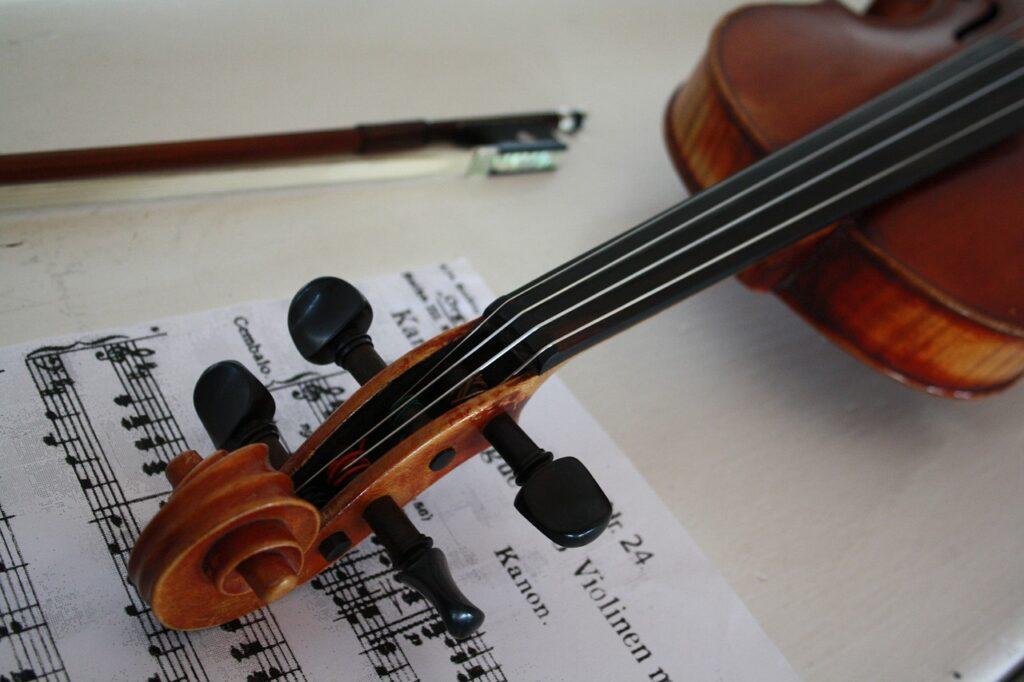Estimated reading time 3 minutes
Table of Contents
Shatter the Perfectionism Chains #1: Not Just High Standards
Are you a music teacher? Do you have a student who struggles with obsessive perfectionism? While having high standards is a good thing, obsessive perfectionism can be debilitating. Keep reading to learn how to shatter the perfectionism chains in music lessons.

Shatter the Perfectionism Chains #2: The Face of Obsessive Perfectionism
Close attention to detail is a useful skill for musicians, but…
- When the pursuit of excellence becomes overwhelming, perfectionism and procrastination together will stop any forward progress at all.
- If it gets to that point, you’ll need to try to help the student to shatter the perfectionism chains.
- How? By helping the student embrace the concept of good enough.
What does perfectionism look like:
- I had one piano student who wanted to have the music flawless before she showed it to me.
- It got to the point where I’d just sit and eat my lunch as she practiced.
- Basically, a music teacher’s job is to help students correct mistakes, but this student’s obsessive perfectionism prevented her from accepting any help.
I had another student who compulsively worked to try to achieve the ideal performance, even though he could already play the piece without mistakes.
- I had the hardest time convincing him that he’d gotten it good enough.
- It became such a problem that he’d melt down and even thought about quitting piano.
- I finally had to urge him to move on from the piece so that he could recapture his love of playing.
So, what can you do about it?

Shatter the Perfectionism Chains #3: So, What Do You Do?
Whether you’re dealing with ADHD perfectionism, autism perfectionism, or perfection procrastination, this piece of advice from The Inner Game of Music can help shatter the perfectionism chains:
Permission to fail leads to success… There is a custom in golf called ‘taking a Mulligan’… If you miss your first drive at the first hole, you can take a ‘Mulligan’ and do the shot over again…
Since you know you are going to have a second chance at that first drive, you are likely to be pretty relaxed about it… Golfers who are playing the ‘Mulligan’ convention often let go, and drive their first ball better than they might have done otherwise. (Green and Gallwey 33)
Tell your students that it’s okay to make mistakes, that they’re part of the process of learning.
- Tell them that if they make a mistake, you’ll work on it together.
- Explain that it’s your job to help them work through any mistakes.
- If you can get the students to accept that it’s okay to make mistakes, you can then work to get past the obsessive perfectionism tendencies.
Shatter the Perfectionism Chains #4: Final Thoughts
Here’s a summary of Shatter the Perfectionism Chains in Music Lessons:
- There’s a difference between attention to detail and obsessive perfectionism.
- If the pursuit of excellence starts to inhibit a student’s ability to achieve excellence, you’ll have to help the student realize that it’s okay if a piece is just “good enough.”
- Let the student know that mistakes are okay, and that together you’ll work on correcting them.
- However, the student will need to learn to trust you when you say it’s good enough. So, that way you can move on to the next task.
- Otherwise, the student risks being stuck in an endless cycle of frustration and guilt.
Related Posts
- How to Overcome the Fear of Performing in Front of an Audience
- D’you Want Some Music Tips and Tricks I’ve Learned Over the Years?
- How Do I Make ANY Progress and Have Fun in Music Lessons Again
© 2024 Geoffrey Keith
Join me for in-person or online lessons today!
Back to the All-Purpose Music Tips and Topics category blogs page
How to Graduate from the Color Coded Sheet Music: Part 2
Has your child or student shown readiness to move on from color coded music notes? The "How to Graduate from Color Coded Music Notes" series will explain how it works. Read more to learn how to transition from the color coding to the clef mnemonics, empowering students to graduate from the color coded sheet music. Estimated reading time 4 minutes.
Read MoreD’you Want Some Music Tips and Tricks I’ve Learned Over the Years?
Have you ever wondered what the best practice strategies are? D’you want some music tips and tricks I've learned over the years? Mastering playing an instrument or singing can be both challenging and rewarding. Need some help? I’ve been teaching music lessons for over thirty years. In that time, I’ve gained tons of tips that’ll improve your skills. I’ll share a few of the best ones in today’s post, and even more tricks in the All-Purpose Music Tips and Topics posts. Click to get these valuable tips. Estimated reading time 3 minutes.
Read MoreArt vs Commerce in Songwriting
Ever wonder if writing a hit song means you’re selling out? When pitching songs, do you worry about losing creative control? The question of art vs commerce has only been with us a relatively short amount of time. Read more to find out what changed. Estimated reading time 6 minutes.
Read MoreWhy is Classical Music Interpreted Differently from Pop Music? Part 3
“Why is classical music interpreted differently from pop music?” Interpretation has a very important role in performing classical music. This doesn’t mean that interpretation can’t be important in pop music. However, classical artists seem to be very aware of the process of how to interpret a piece of music. You can be too. Read more to learn how it works. Estimated reading time 2 minutes.
Read More




